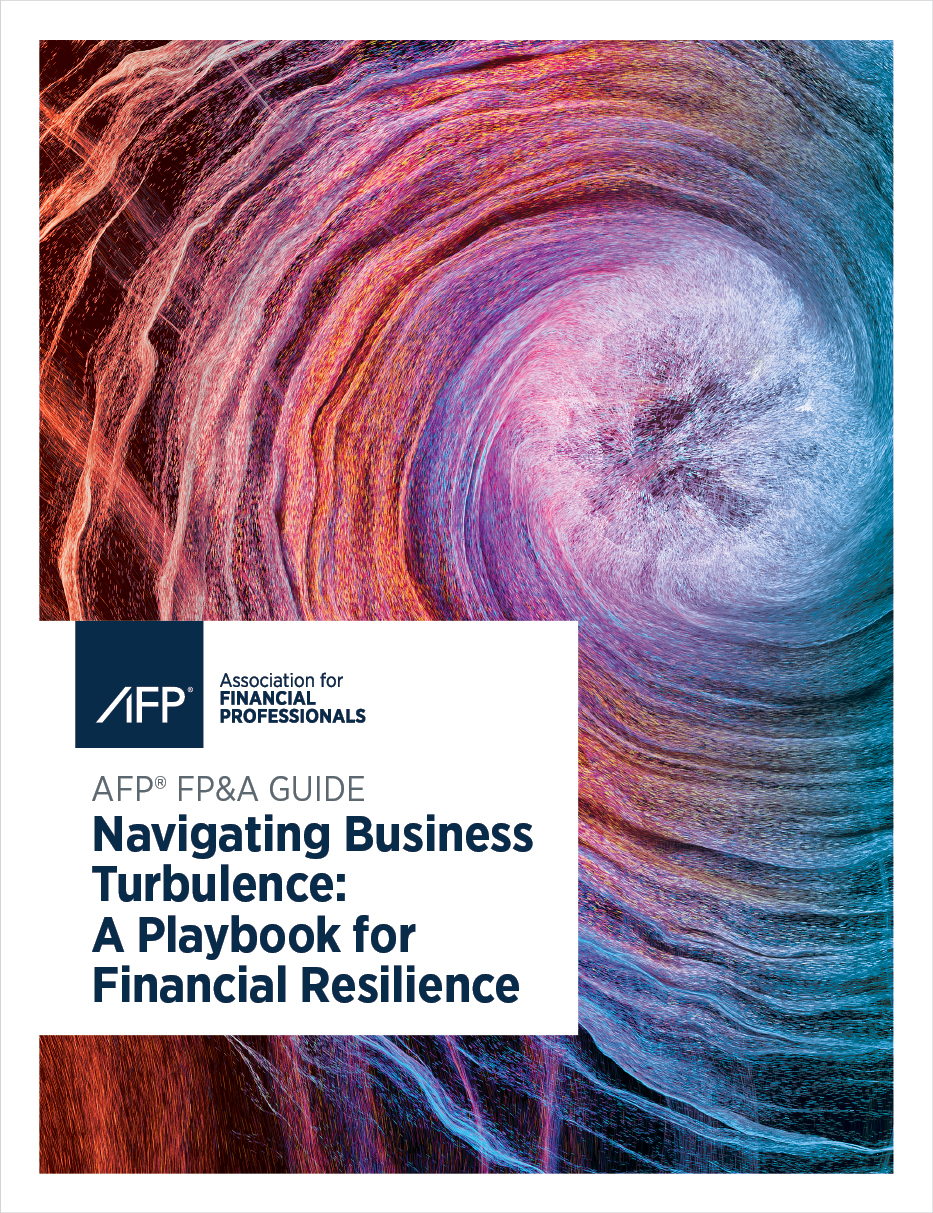Articles
The Treasury Career Path
- By Dominic Salomoni
- Published: 3/4/2014
Following the financial crisis, the treasury role has been elevated to a higher profile in many organizations. Tighter regulatory measures from the banks have led to challenges in obtaining funding for businesses. Hence the priority role of a treasury professional—funds management and cash flo ...
Copyright © 2026 Association for Financial Professionals, Inc.
All rights reserved.

